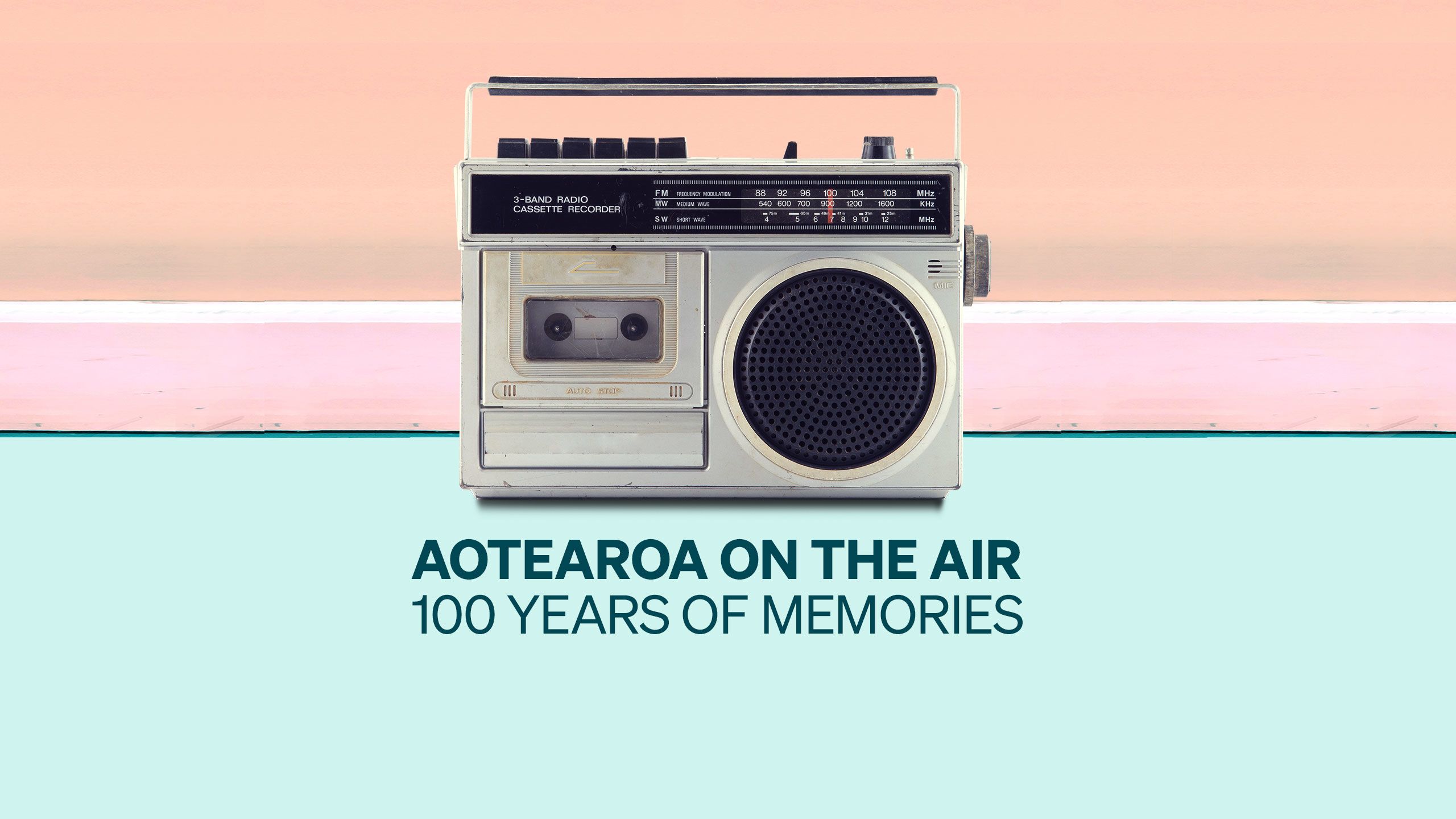
Everyone has their own radio memories of stories or events that have stuck with them. Here are a few from listeners. You’ll hear more memories on RNZ National over the week of the Aotearoa on the air: 100 years of radio celebrations. Thank you to everyone who submitted memories.
Under the public service ethos of radio right through until the 1960s strict guidelines applied around what music could be played on air.
Some of the more absurd restrictions included, Bing Crosby at the height of his career only being allowed to be played once a day. Sophie Tucker and George Formby were shuffled off into the dead of night – they could only be played after 10pm – both being considered too risqué.
Another Programme Director with a strong dislike of Elvis Presley, hid the Presley records under his carpet so they couldn’t be played.
Buzz Perkins a 1ZB announcer was so frustrated by these edicts that one night he broke into the manager’s office to retrieve a confiscated record.
Former Newstalk ZB staffer
When we were growing up our Father would take us sailing in his little old yacht around banks peninsula in Christchurch. It would mean an exciting day of exploring bays, Hectors dolphins surfing on the bow wave and pretending we were ocean explorers sailing the big seas. Mooring in one of those bays at night dinner was rustled up on the little cooker and then we would snuggle sleepily into our sleeping bags and tune into the RNZ story time. Lying there with the water lapping at the side of the hull, the lantern hissing away and the story unfolding in our minds I would feel so lucky to have such a great dad. Every time I hear a story on the radio it takes me right back to those moments.
Josie Macfarlane
A special memory of my mother’s CWI radio talks to small isolated rural communities in Hawkes Bay. She typed out her talks and read them out over the radio during the 1950’s and early 1960’s. I think the station was 2YZ in Napier. I have the copies of most of her talks and they are a good reminder of life for rural women in those times.
Another memory was my father sitting with his ear glued to the radio in the middle of the night listening to the All Blacks playing in South Africa and England. He would yell loudly when they scored waking us all up.
Yet another good memory was all sitting around the radio listening to Selwyn Toogood It’s in The Bag. My Father knew all the answers.
These memories have stayed with me as I had such a rich and full life as a child living on a farm in Hawkes Bay. The radio was a very central part of family life.
Louise Yri
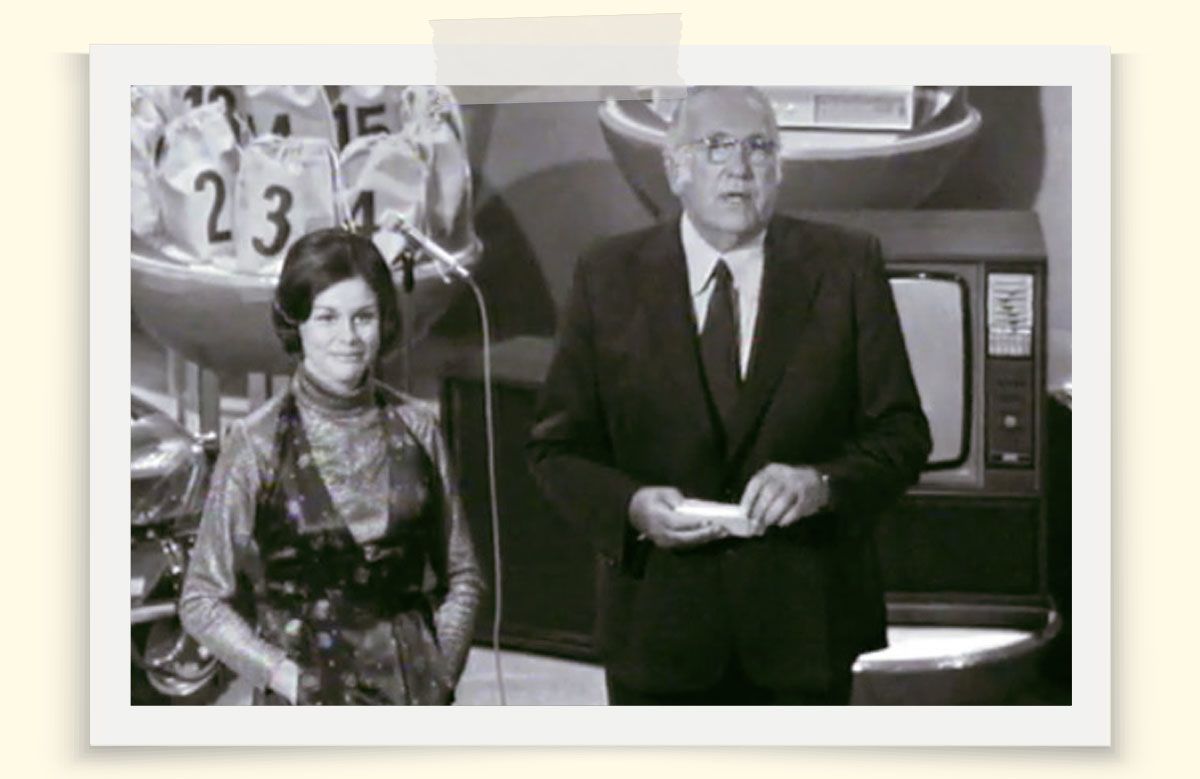
Heather Crofskey (née Heather Eggleton) and Selwyn Toogood on the set of It's in the Bag. (NZ on Screen)
Heather Crofskey (née Heather Eggleton) and Selwyn Toogood on the set of It's in the Bag. (NZ on Screen)
Cyclone Val is described as the worst cyclone since the historical Apia cyclone of 1889.
And we were on Savai'i, in the very midst of it. It was to be five days of never forgotten drama. The country, remembering well the devastation of Cyclone Ofa less than two years prior, was battened down, awaiting this fresh onslaught.
In our house on the rise, we waited with apprehension. The strengthening winds of the first afternoon began bending the tops of the coconut trees. By evening that wind began to prowl around our block house. Not just huffing and puffing like a big bad wolf, but rather like a lion loudly seeking its prey. It would actually howl and growl, circling the house from one direction, then another, buffering walls, working on windows and doors, as if seeking entrance. Never letting up. It sounded alive. It was really quite unnerving. Memories of Ofa and fear of similar devastation served to worry our minds. There was nothing we could do. All we could do was wait, and fear the worst.
As night deepened I made my way in the dark to my room, subconsciously perhaps seeking a place of refuge. Sleep seemed impossible. The howling and shaking outside continued. It was now accompanied by lashing rain. Cold, dark, alone and apprehensive, with no hope of sleep I sought solace in the only source of communication, the overseas radio broadcast.
Tuning into Radio New Zealand I was able to pick up the 10 o'clock news. It was not a clear reception but it served as some consolation. Then I heard Samoa being mentioned. The announcer spoke of our situation with genuine feeling and concern. He said words to the effect that New Zealand was aware of us and thinking of us. An Orion would be coming as soon as the situation allowed. A huge surge of emotion surged up within me. No longer did I feel so alone; no longer so hopeless and helpless. Help would come as soon as it was possible. Good old NZ. And good old Radio NZ. I have never forgotten your encouragement and support.
Damien Patrick Shutt
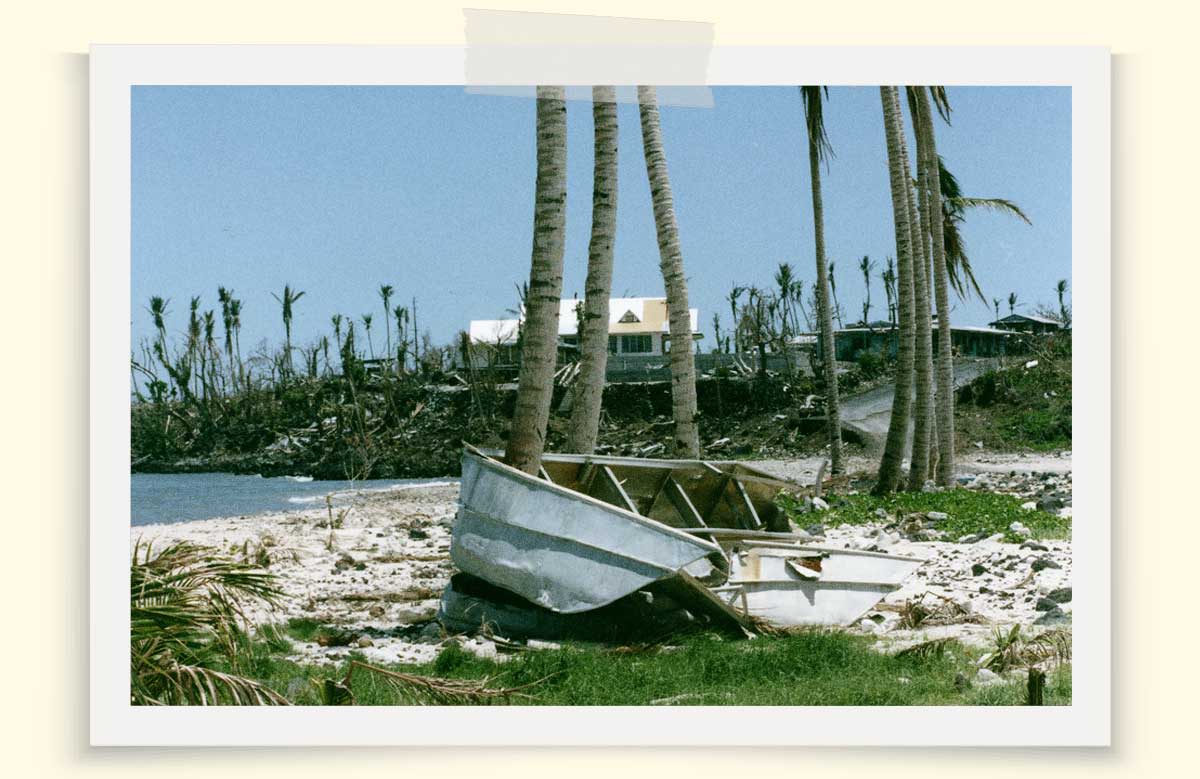
Aftermath of Cyclone Val, 1991 (Archives New Zealand, 1992)
Aftermath of Cyclone Val, 1991 (Archives New Zealand, 1992)
Listening to the first moon landing at primary school, initially. Then running all the way home, around 20 minutes, so that I didn't miss the moment when Neil Armstrong set foot on the moon. I made it in time!! I live in Wellington now, but this was in my childhood growing up in Nelson.
It's just one of those things that you aren't going to forget - a pivotal moment in history. Space and the Apollo missions were a big thing growing up in the 60s and 70s.
Lloyd Pallesen
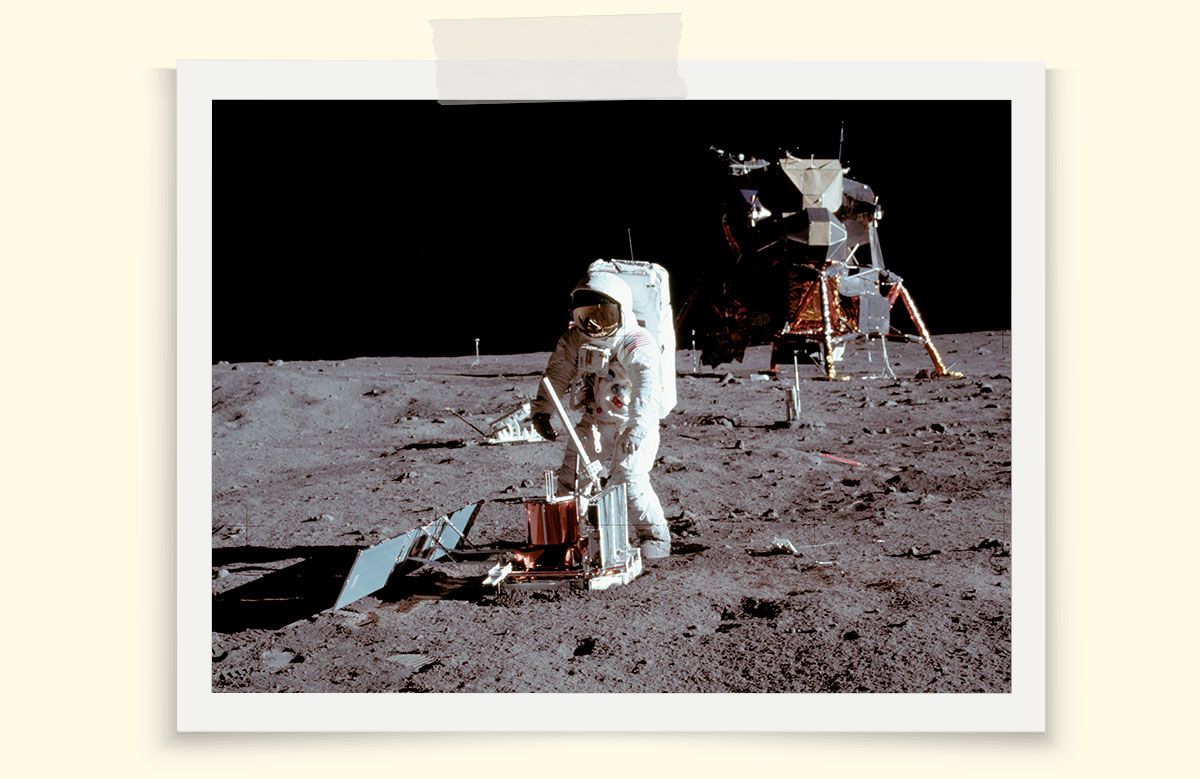
Buzz Aldrin conducts experiments on the moon's surface, 1969 (AFP / NASA)
Buzz Aldrin conducts experiments on the moon's surface, 1969 (AFP / NASA)
As a child in the 70's I remember listening to Morning Report every day while getting ready for school. I always remember listening to Connie Lawn's reports from Washington and the distinctive way she signed off her reports always stuck with me.
I read or heard that in a press conference with Nelson Mandela was so excited to meet Connie Lawn he hugged her, he used to listen to her reports on the radio when he was in prison on Robben Island. It gives me chills to think that the voice that informed me in NZ as a school girl was also informing such colossal figure in history.
Georgia Burn
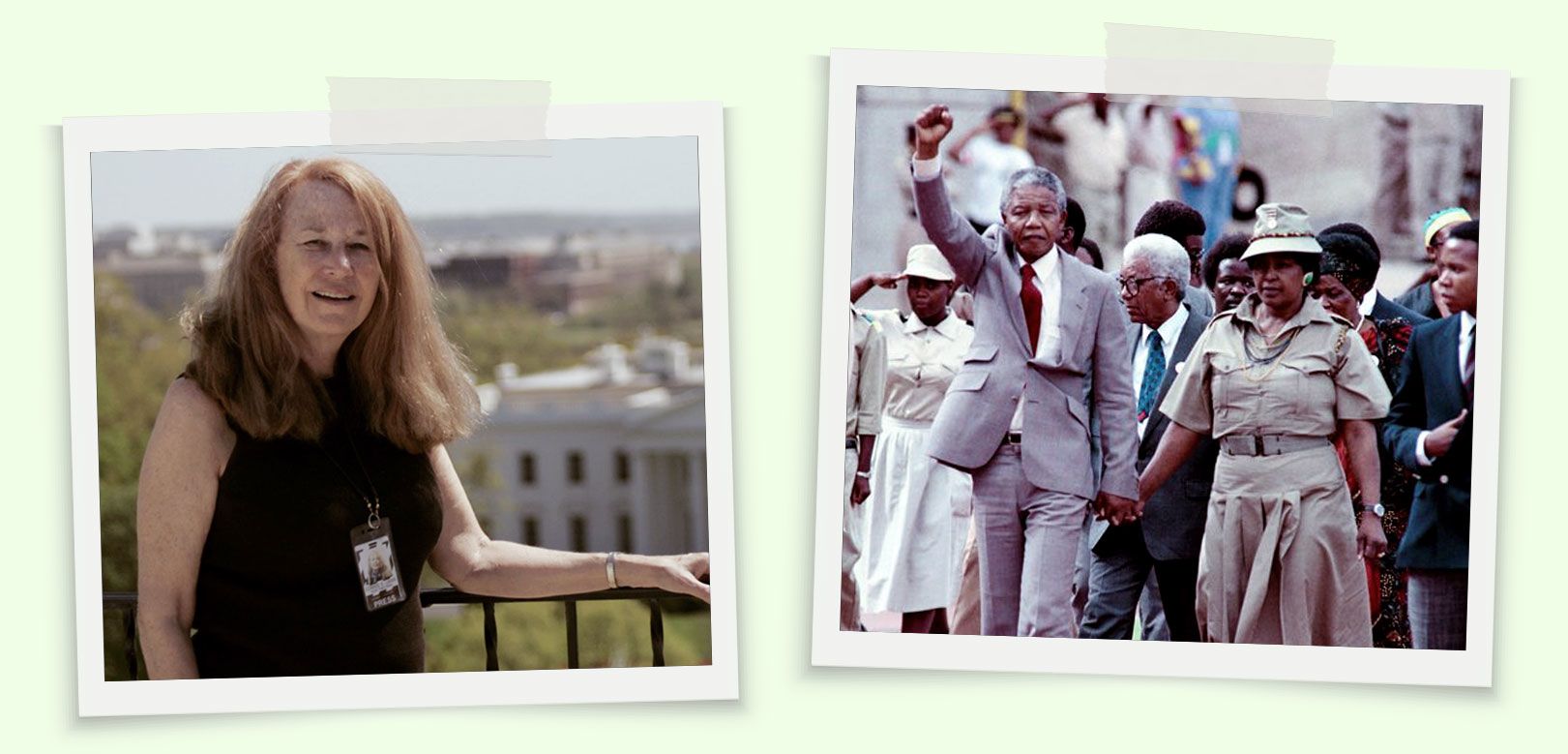
Connie Lawn (Supplied) / Nelson Mandela along with his wife Winnie after being released from prison, 1990 (AFP)
Connie Lawn (Supplied) / Nelson Mandela along with his wife Winnie after being released from prison, 1990 (AFP)
I woke up at 7am-ish on September 12th and turned on Channel Z, as all Millennials did back then, and the hosts said that some planes had crashed into buildings in New York. I can't remember their exact wording on that part, but I do remember that they emphasised that they were NOT joking. That's how I found out about the Sept 11th Attacks. I was only 16 but I knew this was a Big Deal. Nothing like that had happened before.
Tamsyn Clemerson
When Mani Dunlop spoke with a guest on Midday Report in te reo because the guest couldn't articulate herself as proficiently in English. Mani conversed and translated the whole convo, it was badass :)
Ben van Opzeeland
As a pre-school post-WW2 child captivated by curiosity about the radio announcer, I ripped open the speaker grill-cloth on our GoldenTone mantel radio to find him. More questions arose than were answered by the vibrating black paper cone. The rip was never repaired, so for all the remaining years at home, my damage to the prized device was on exhibit. Fortunately the stories became indulgent (he was so young!)
Peter Calvert
Maybe a little different to the normal submissions you would get, but I have a lot of special memories of RNZ from my childhood, as my dad (Andrew McRae) has been a journalist for you for over 40 years! One of my earliest memories is going to the station with him and watching all the lights flicker on the sound equipment and being so fascinated with how it worked and how everyone in the country could hear what was going on in the little box. I have so many fond memories of hearing him on the radio and feeling proud - RNZ was a big part of our lives.
But my clearest memory is probably of him doing the news for the big Christchurch Earthquake - I was 18. I remember him getting a phone call and dropping everything, and asking me to help him research what was going on, and pulling out all his sound equipment, and flying into action! He had multiple computers and calls going, recording all at once, it was happening live, and I realized then just how important radio was when there was a crisis, which was so eye-opening. A bit after earthquake happened the phone systems overloaded, and people couldn't text each other to say they were OK, and knowing that for some people what he was working on was the only news they had on what was happening to their loved ones in Christchurch was really humbling, and gave me real respect for the place of media in today's society.
Cat McRae
My radio memory has to do with the pleasure of the hand-built and the magic of Jimi Hendrix. As a kid growing up in Palmerston North I belonged to the Boys' Brigade and one of the things we did was learn various skills, including practical electronics. So it was I had the chance to assemble from scratch, over a number of weeks - as it included hand winding a copper coil - a simple transistor set. I'll never forget when I took the completed project home and showed it to my uncle the first thing he did was fossick around in his garage and produce two car aerials which he proceeded to solder together end-on-end and attach to a beautifully made bracket which he fashioned out of scraps of tin and wood. He then fixed this arrangement, along with a very long wire, to the gable-end above my bedroom, running the wire from the end of the antenna, through my bedroom window, to my radio. It was on this set-up, which was entirely hand built, that I heard whilst lying in bed one night listening through a single earpiece the incredible sound, broadcast from a local radio station, of Jimi Hendrix recorded live at Woodstock playing his version of The Star-Spangled Banner. I don't believe it's any exaggeration to say that moment it felt physically as if the top of my head was taken off. Thanks Jimi. Thanks uncle. And thanks radio.
Duncan Philps
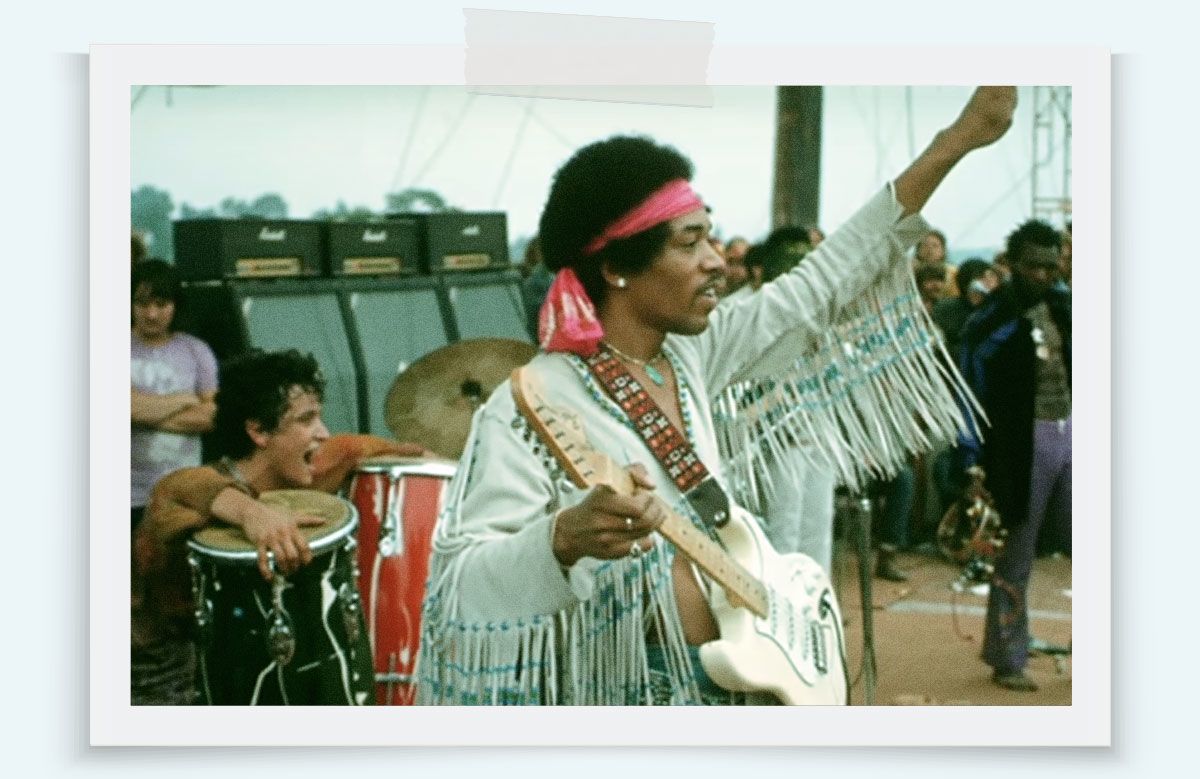
Jimi Hendrix performing at Woodstock (YouTube)
Jimi Hendrix performing at Woodstock (YouTube)
I vividly remember lying in bed as a 15 year old listening to the building story about Flight 901 that was missing on a scenic flight to Antarctica. It was on the six o'clock TV News that the flight was overdue and that it had enough fuel to land by 10.00pm. I lay in bed listening to the building story until it became apparent that the plane wasn't going to return.
It was a huge story and RNZ stayed on it nearly continuously. It was literally a life and death story, live on the radio.
John Doorbar
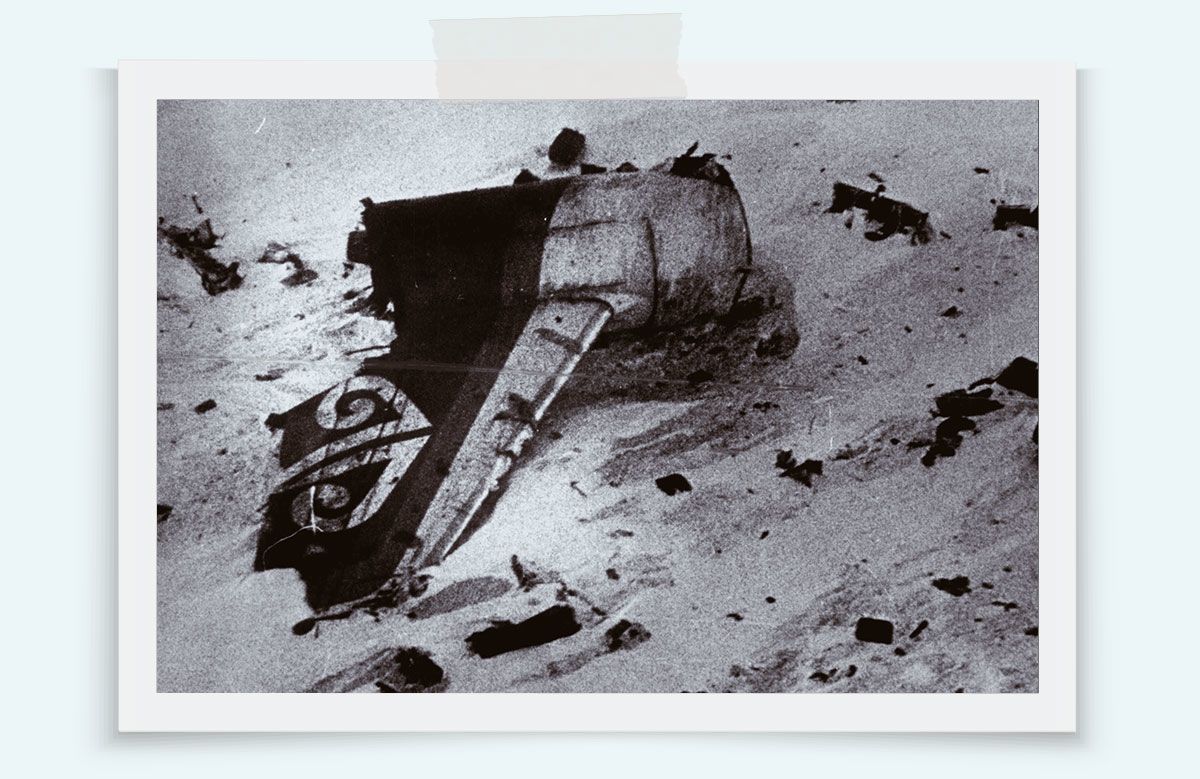
Flight TE901 at the site of the Mount Erebus crash. (Colin Monteith / Antarctica NZ Pictorial Collection)
Flight TE901 at the site of the Mount Erebus crash. (Colin Monteith / Antarctica NZ Pictorial Collection)
Every home video of our kids, as babies and toddlers, has RNZ National as the backing soundtrack. The station kept me company (and sane) while I was home with two little girls. It was always on in the background. One day in 2010 I was standing at the kitchen sink washing up the lunch dishes and listening to an interview with Harvey Alison on Afternoons. He was helping to run a reading programme at One Tree Hill College and said that he needed someone to conduct some research on its effectiveness. I remember realizing that that was exactly what I wanted to do. I got in contact with the station and was put in touch with him. I conducted my Masters research at the school and they used the results to further support their work.
Lindsay Fish
My favourite radio memory is waking up early on a Sunday morning in the early 60s to listen to the children’s stories. My sister and I loved them sooo much my mother (Jenny Heal) wrote a story about both of us, which she sent to RNZ and was aired several times. My story was called “Martin builds a Snowman” and my sister’s (Sally Heal) story was “Karen Comes to Stay”.
Martin Heal
From the early 1950s I remember hearing messages to families from our soldiers serving in the Korean War. I remember long lists of football results from England. I remember the quiz show, It's In The Bag with Selwyn Toogood on Saturday nights and that we used to make fudge to eat while we listened to the programme.
Dorothy Bulling
The long range forecast ruled lunch time as a child - dad relied on it to plan farm work and we as small children had to sit quietly so he could hear it; that and rural report
The correspondence school broadcast, we often listened it was a great connection with our teachers in Wellington and other students - I especially remember stomping around the kitchen as elephants one snowy day.
Kathryn
As a young boy in the mid /late 1940 I recall sitting in the control room of the local radio station 2YB.
My late father Fred Huggard was a radio tech by trade and volunteered service as the Night Tech.
There were studio sounds for local players. The use of coconut shells was for horse clops. A wooden wheel with a piece of fire hose wrapped over it created all sorts of wind sounds. An old cupboard with latch and squeaky hinges for all sorts of door opening noises.
The big music record discs.
They had birthday announcements for listener’s kids as to where they could find hidden presents.
Celebrity announcers I recall one Uncle Ted. There was some ladies but I can’t recall their names.
From there I started a life time involvement in the great advancement of radio erecting 40 foot radio aerial masts for better reception and then the slow progress into electronics.
The arrival of the transistor, the OC1 BOOM. What a journey. Now retired.
John Huggard
In early 1990 my husband and I had just bought our home in Auckland. On February 6th, I was in the house scraping old wallpaper off the walls and scrubbing the tobacco stains off the ceiling. I turned the radio on to RNZ to keep me company and listened for several hours to the Waitangi Day broadcast.
As an immigrant from the US that day has stuck in my memory as I feel I learned so much about NZ's history and Waitangi Day in particular. Years later, when I was completing my PhD in History at the University of Auckland, I sought out and listened to the archival 1940 NZBC recordings of Waitangi Day centennial commemorations from that year for my research on historical reenactments. RNZ has always been a source of knowledge for NZ history and culture.
Marianne Schultz
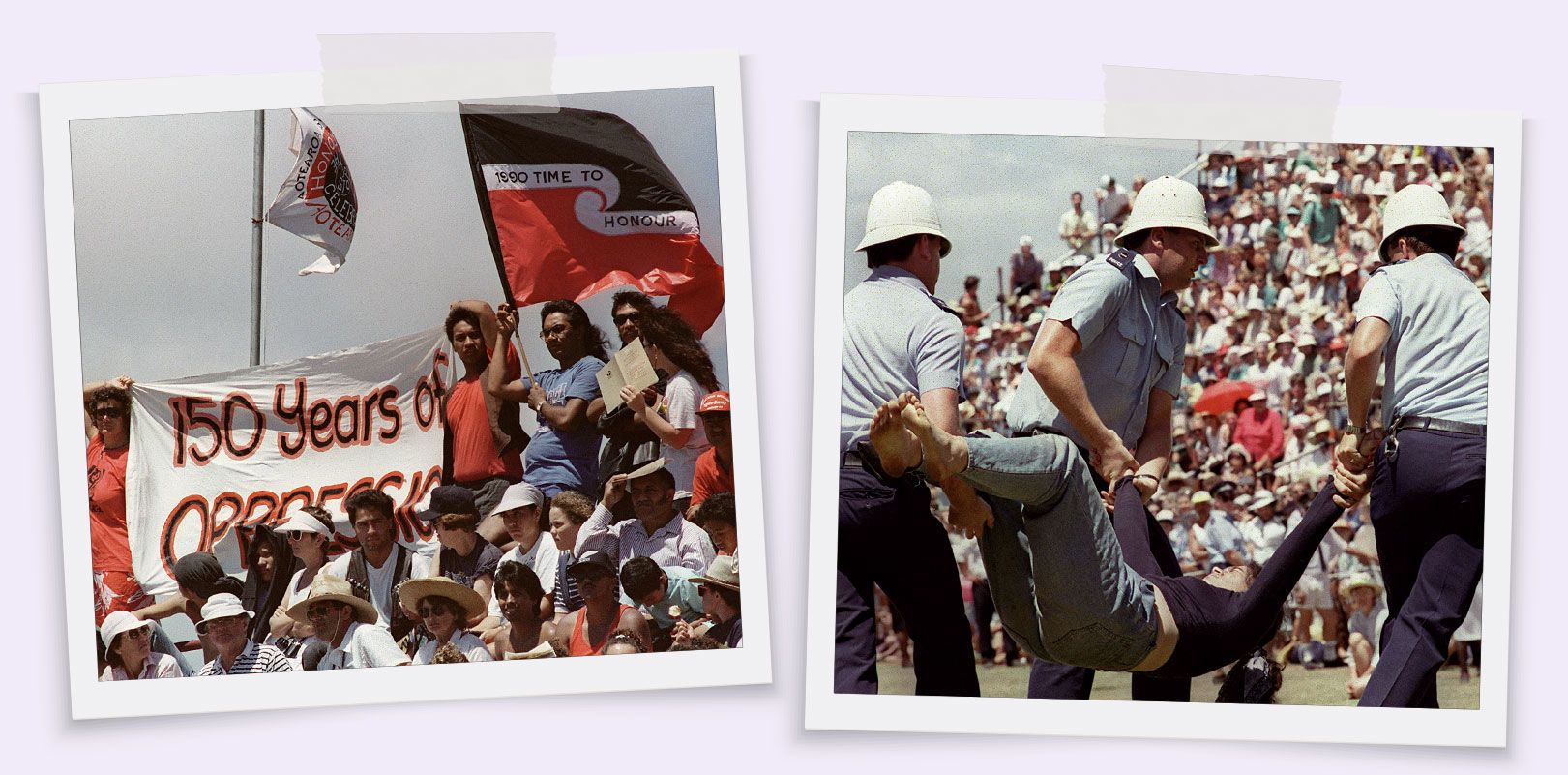
Protests during Waitangi Day celebrations, 6 February 1990. (AFP)
Protests during Waitangi Day celebrations, 6 February 1990. (AFP)


